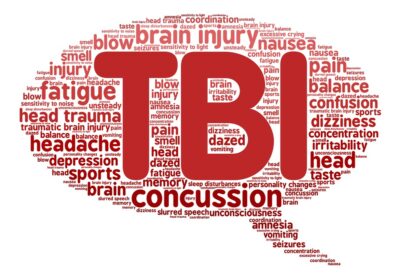
Suffering a traumatic brain injury is a life-changing event. Brain injuries can interrupt day-to-day activities, down to basic functions like walking or speaking. Even a minor concussion can be serious and lead to lingering effects, causing issues in the future.
To make sure you are receiving the best care available without drowning in debt, reach out to an Atlanta traumatic brain injury attorney to ensure someone has your back during this challenging time.
Defining TBI
Defining TBI is not an easy task because the causes of a TBI can be a simple blow to the head. Or the head may be struck with such force that the brain rattles around in the skull. Whether the injury penetrates, bruises, or causes a bleed; TBI can result from this damage to the brain’s frontal and/or temporal areas.
The severity of a TBI is divided into four levels:
- Mild
- Complicated–Mild
- Moderate
- Severe
Defining an mTBI
Each year, approximately 1.5 million Americans suffer a TBI. Mild traumatic brain injury (mTBI) or concussions make up about 80% of all annual TBI cases. Broadly defined, mTBI is any head injury that modifies the mental state which could be:
- Feeling dazed
- Loss of consciousness for 30 minutes or less
- Forgetfulness after the injury or posttraumatic amnesia
- Delayed responsiveness
If intracranial bleeding accompanies an mTBI, it is upgraded to a complicated-mild TBI. Usually, bleeding inside the skull is associated with moderate and severe TBI (msTBI).
Get the strong arm
Recent Studies in TBI
Historically, mTBI was not considered as serious as msTBI and were often looked at as benign occurrences, but new attention has been directed at mTBI. Neurologists are reviewing how TBIs are evaluated and the possible severity of mTBI. This includes how the treatment is managed and developing coordinated care to reduce the adverse effects for long-suffering mTBI patients.
There were two scientific views concerning the long-term effects of mTBI. In the past, many medical professionals discussed mTBI as being just that—mild with relatively few patients exhibiting long-lasting neurological or physical problems. The other view called for extended studies to verify symptoms returning or mTBI conditions developing in patients after the completion of their treatment.
In March, a cohort study was released. Neurologists affiliated with nine hospitals and universities studied approximately 1,200 patients from level I trauma centers over a five-year period. They focused on long-term outcomes and lingering conditions or symptoms associated with mTBI and msTBI.
Findings for mTBI
Their findings show the majority of the patients’ conditions typically improved in the first three-to-six months after the initial injury. This is where most of the past studies end, resulting in the analysis of limited data. Thinking that they have made a complete recovery, many return to work and their daily routines.
But after short periods, both mTBI and msTBI patients began to report persistent symptoms and conditions associated with TBI, including:
- Anxiety
- Depression
- Difficulties with speech
- Mood swings
- Neglectful
- Personality changes
- Problems with processing visual information
- Reacts illogically
- Struggles controlling impulses
- Trouble communicating or understanding others
- Unable to perform routine tasks that require multiple or complex movements despite having the physical ability to complete them
In many cases, these adverse clinical outcomes lingered or increased over the next five years, and higher mortality rates existed with both mTBI and msTBI patients.
Conclusions Made About TBI Cases
For years, we have known that moderate-to-severe traumatic brain injuries are one of the primary causes of death and disability resulting from an injury. But now, there is a rising consensus that mTBI is not just a problem for athletes who play contact sports and members of the military. Persistent neurologists are revealing case after case of regular civilians suffering an mTBI and quietly dealing with years of adverse neuropsychological effects.
This data from recent studies indicate that TBI recovery does not usually respond to any schedule. Instead, recovery at all levels of TBI is dynamic and should receive clinical attention for much more than six months. Often, years of medical treatment and support are needed to overcome the physical and neurological deficits related to TBI.
These conclusions call for additional studies to be conducted and more data to be collected. This data only increases the knowledge of the long-term outcomes of TBI, and with this knowledge, additional therapies can be developed to help create better monitoring, post-injury care, and rehabilitation services.
Speak to an Atlanta Head Injury Lawyer for Free
Even a mild head injury is nothing to take lightly. Typically, any traumatic head injury warrants a trip to the hospital to get an MRI scan of the brain. Brain injury may be one or all three of the following:
- Being monitored at the hospital
- Medications
- Surgery
Any level of head injury may require years of treatment and monitoring. This can get expensive and become a heavy financial burden to bear. Especially if you are not able to work. Not only does it not hurt to get a legal opinion, but you should also reach out to an Atlanta traumatic brain injury lawyer as soon as possible.
The experienced attorneys at John Foy & Associates know what it takes to successfully manage a brain injury case, from the initial claim to fighting for your rights to securing compensation to assisting as you get your life back.For a free consultation, contact us online today.
(404) 400-4000 or complete a Free Case Evaluation form





